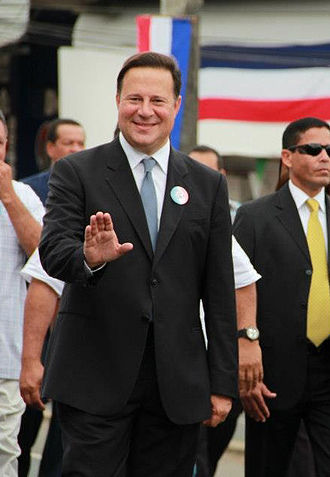Panama elected a new president this past Sunday, and despite trailing in the polls for months, Juan Carlos Varela was victorious. One of the most heated races in recent memory ended with the opposition, and not the incumbent’s party, taking the prize. He served as VP under Martinelli, although they had a well publicized falling out in 2011 after he was removed from his position as foreign minister. Varela is religious, a successful businessman, and was educated in the US.

Varela, 50, began his political career at a very early age. After graduating from Georgia Tech University he returned to Panama to work in the family business, a major rum producer called “Varela Hermanos.” He also got involved in local politics, and by the time he was 30, was elected as chief of the Panameñista party, the same party he currently belongs to. Varela continued a successful private and political life until 2009, where he teamed up with former President Ricardo Martinelli, to run as his Vice President. This move was seen as a bold one, as Varela had announced his own presidential bid, but retracted it in order to unite the parties, and take on a lesser role.
What can we expect?
While Varela and Martinelli had a very public falling out, many believe that Varela’s government will not stray too far from the initiatives of the previous administration. Though of a different political party than the former president, Varela had supported, and even help execute, some of the countries biggest achievements under the Martinelli administration. He is described as a “free-trade capitalist”, and has promised to maintain many of the current initiatives, such as the $100 a month for non-pensioner seniors, lines 2, 3, and 4 of the Panama Metro, and further trade pacts with foreign countries and companies.
One of Varela’s biggest campaign promises, and something on the minds of many Panamanians, is to reduce inflation, specifically regarding basic daily foods. His plan is to set price freezes on 28 basic food items, a move that he claims will reduce the monthly “bread basket” expense for a family by $58. He also wants to raise the amount of money given to seniors, as well as taking a tough stance on crime, which has risen throughout the country in the past few years.
Another big campaign promise from the Varela camp was transparency. After numerous corruption scandals tarnished the Martinelli administration, the president’s approval rating dropped substantially. In political terms, there was a huge amount of disillusionment between the Panamanian people and their government. Varela claims that this will end with his administration, and he plans to open up more information about government programs and businesses to the public. This may be tougher than he credits it, however, as his opposition is still in control of the legislative body, and many expect a fight.
Like most politicians, only time will tell if his promises will become realities. However there is a sense of hope in Panama, as a new presidency brings new potential, and a fresh look at the future.